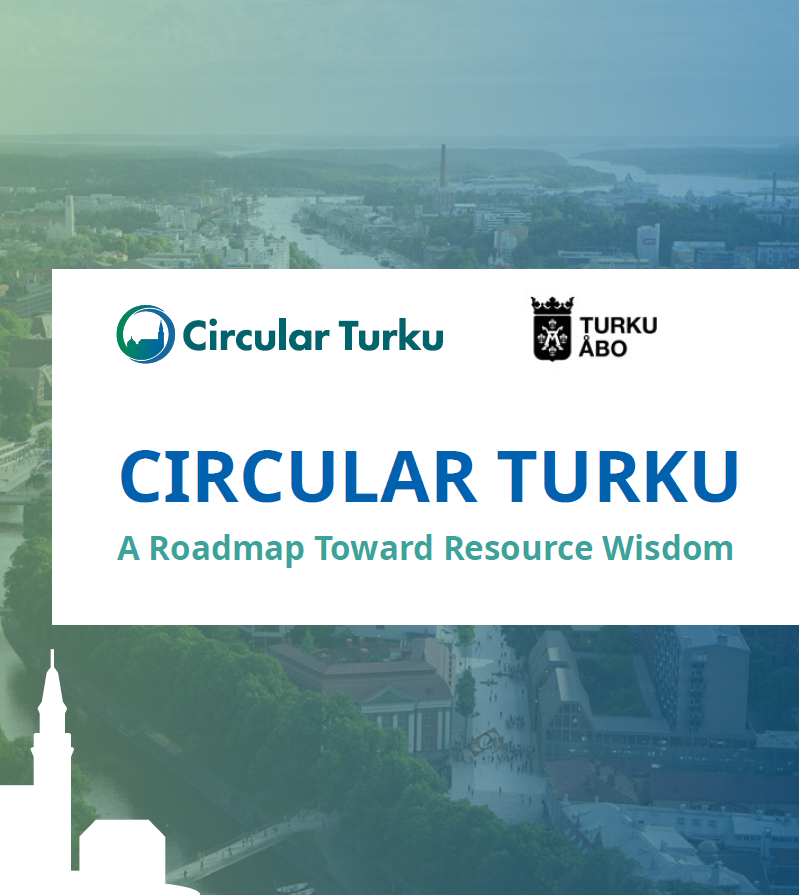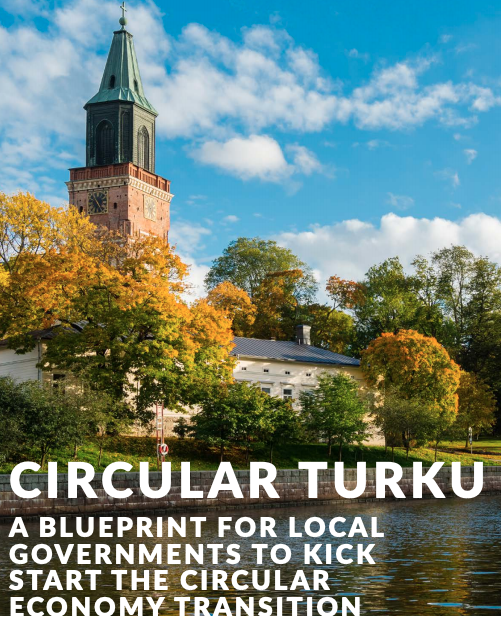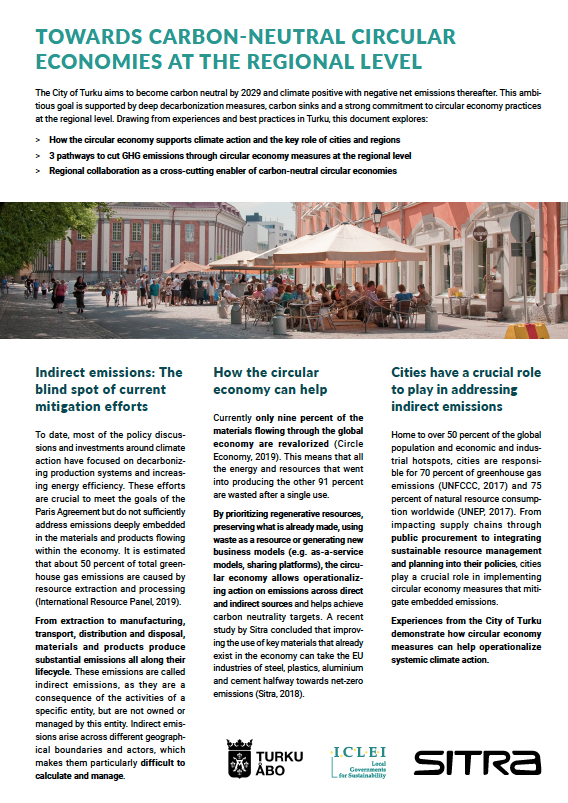Located on the Southwest coast of Finland where the Aura river meets the Baltic sea, Turku is the oldest city in Finland. The Turku region comprises eleven municipalities and is home to over 300,000 inhabitants, making it the third largest urban area in Finland after Helsinki and Tampere.
Turku aims at achieving carbon neutrality by 2029, when the city will celebrate its 800th birthday and become climate positive with negative net emissions. The city is also committed to achieving resource wisdom (zero emissions, zero waste and a low ecological footprint) by 2040. To support these goals, Turku collaborates with regional partners and ICLEI as part of the Circular Turku project.
Turku’s Mayor, Minna Arve, also holds the Global Circular Development Portfolio at ICLEI and as such plays a championing role to support the localization of the circular economy within the network.
Learn more about Turku’s strategic goals for resource wisdom in this video.




